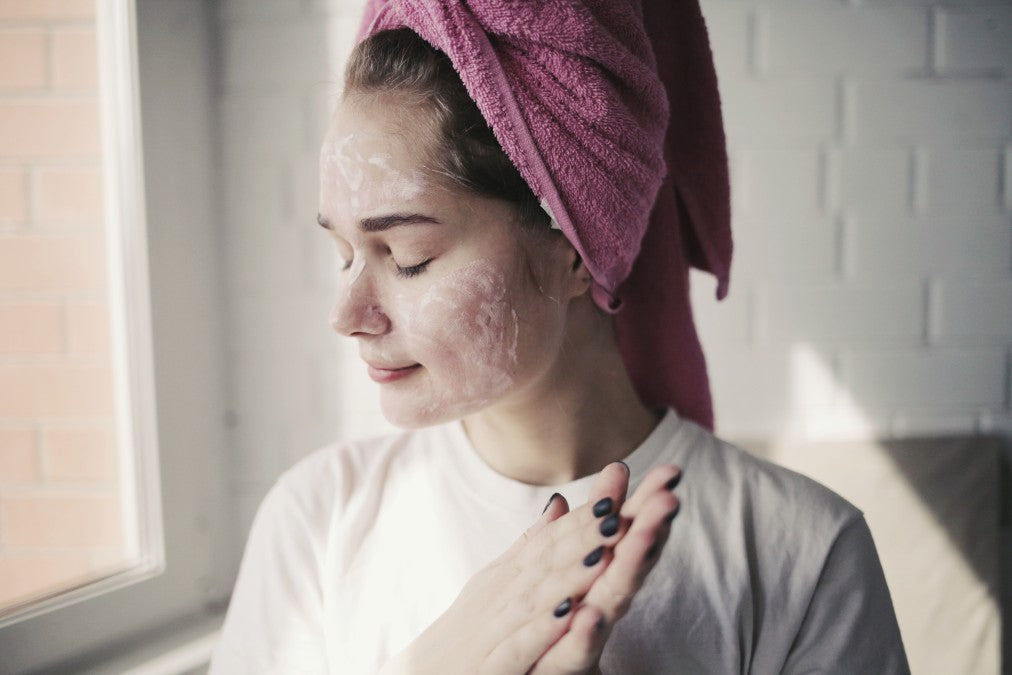
4 common skincare ingredients that shouldn’t touch your skin
You’d think products designed to look after the health of your skin would be, well, healthy. Sadly, this isn’t always the case. Products like moisturisers and toners are applied externally, but they can be absorbed deeply by your skin, even reaching your bloodstream. That means any toxic ingredients will be absorbed too.
Here are four ingredients commonly found in skincare products that you really don't want on your skin!
Parabens may be a cancer risk
Parabens are very common preservatives found in skincare products, as well as deodorants, toothpaste, shampoos, conditioners, and cosmetics. They’re also a common food additive, showing up in around 90% of grocery items.
Parabens have been in use since the 1950s. They’re popular with manufacturers because they are a cheap and effective way to stop products from spoiling. But, as is often the case with cheap solutions, there’s a dark side to these preservatives.
Parabens are xenoestrogens, which means they mimic oestrogen in the body, which is a problem. Hormones like oestrogen help bodies develop in various ways, including growing tissue. Making your body think there is more oestrogen in your system can trigger excess cell growth, increasing the chance of mutations that lead to uncontrolled cell growth. In other words, to cancer.
Small amounts of parabens are unlikely to cause issues but, as you saw above, parabens are everywhere! They also tend to persist and build up in the body, and studies have consistently found parabens stored in human tissue. As such, it’s best to avoid them whenever possible.
Start checking the label whenever you buy skincare products, cosmetics, and other beauty products. If you see methylparaben, ethylparaben, propylparaben, butylparaben, or isobutylparaben, keep searching. In food products, parabens are listed differently, so also be on guard against E214, E217, E218 and E219.
The best thing to do is simply opt for natural skincare products that don’t use compounds like parabens. For example, Okana balances ingredients in such a way that their skincare products are self-preserving.
Sodium lauryl sulphate (SLS) and sodium lauryl ether sulphate (SLES)
SLS and SLES are foaming agents commonly used in skincare products, shampoo and toothpaste. While not acutely toxic, both these chemicals can irritate your skin and eye and you may even become sensitised over time, eventually developing an allergic reaction to SLS or SLES. Allergy symptoms include itchy, flaky skin and redness.
Professor Richard Guy of Bath University in the UK found that SLS can cause severe skin irritation and reduce skin function when regularly in contact with healthy skin. Other research has shown that a cream commonly used to treat eczema actually made things worse in many patients due to the presence of SLS.
To avoid the use of SLS, use products that foam up due to natural ingredients, like Okana’s Natural Apple Juice Foaming Cleanser.
Artificial fragrances are allergens
Scent is powerfully connected to our emotions, which is why artificial fragrances are used to help sell everything from skincare products to candles. These products might smell intoxicatingly delicious, but the truth about them is not so sweet.
What’s so bad about artificial fragrances? Quite a lot. Fragrances can include a range of carcinogens, allergens, irritants, and endocrine disruptors. But you’d never know from looking at the label because the exact formulas of fragrances are considered trade secrets. So all you’ll see is ‘fragrance’ or ‘parfum’.
In a typical perfume, you’ll find petrochemicals and other hazardous synthetic chemicals. It’s enough to make you throw away your perfume collection! In fact, we predict the perfume industry has been coming under increasing scruting as consumers find out what’s really in their fragrance bottles. Studies have shown that fragrance ingredients are one of the most frequent causes of contact allergic reactions. Recent estimates say that up to 4% of the general population is sensitised to fragrance ingredients. In New Zealand, that’s around to 200,000 people!
By using 100% natural ingredients, companies like Okana are able to create products with a pleasing smell that are completely free of artificial fragrances.
Polyethylene glycol (PEG)
PEG is added to skincare products for three reasons:
- It’s an emollient that helps to soften and lubricate the skin
- It’s an emulsifier, which allows water-based and oil-based ingredients to mix nicely
- It helps deliver other ingredients deeper into the skin
There’s a lot of contradictory information on the internet about PEGs. Some websites say it’s safe, while others claim it causes heart attacks, kidney and liver failure and brain problems.
According to the Centers for Disease Control and Prevention (CDC) in the US, PEG is poorly absorbed through the skin so topical application isn’t harmful. However, if it makes contact with your eyes, it can cause damage. More worryingly, if it is ingested it can prove fatal!
Digestion breaks PEG down into various toxic compounds causing symptoms ranging from an unpleasant version of drunkenness to multi-system organ failure and death.
Of course, it’s just common sense not to eat your skincare products — and you’d need to eat a lot to suffer the worst effects of PEG. However, if you have kids around who might eat it, that’s a good enough reason to avoid PEG. Or you may simply not want toxic chemicals on your skin, even in small doses!
Good organic skincare companies like Okana stay well away from PEG. There are plenty of natural, food-quality ingredients around that provide the same benefits without the risks.




Leave a comment
This site is protected by hCaptcha and the hCaptcha Privacy Policy and Terms of Service apply.